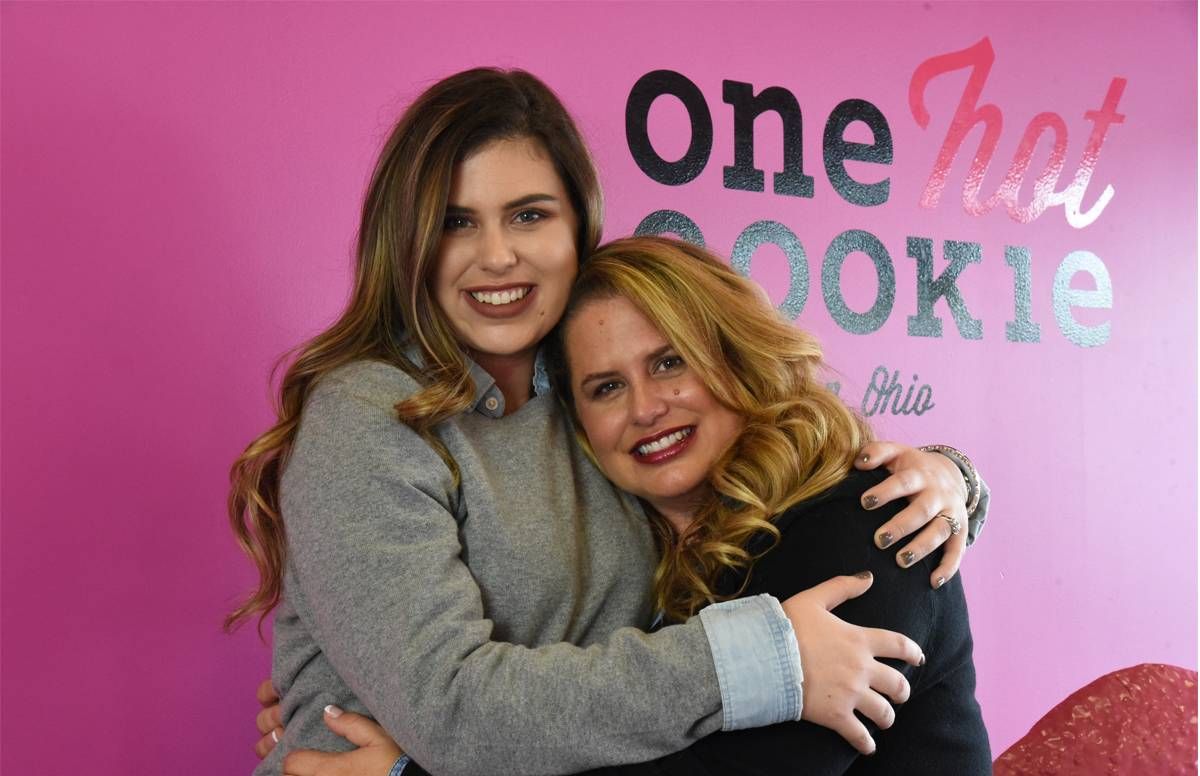How the Coronavirus Is Impacting Small Business Owners
Ways they're trying to stay afloat and where to get help
(This article was updated March 23, 2020 and March 27, to reflect new programs from the Federal Reserve to assist small businesses and the new coronavirus stimulus law.)

The pain and uncertainty of the impact of the coronavirus on small business owners is staggering and likely to be substantial. Entrepreneurs are being forced to take drastic steps to continue operating and many are fearful about their futures.
A National Small Business Association member survey recently found that three in four small-business owners are very concerned about the economic impact of COVID-19. Almost half have already seen reduced customer demand. And 38% aren’t confident in the financial future of their business, up markedly from 15% in January.
I contacted a few small-business owners featured in my recent book about midlife entrepreneurship, Never Too Old to Get Rich, and have to tell you that some of their responses are heartbreaking.
Our Commitment to Covering the Coronavirus
We are committed to reliable reporting on the risks of the coronavirus and steps you can take to benefit you, your loved ones and others in your community. Read Next Avenue's Coronavirus Coverage.
Thankfully, federal, state and local governments are starting to come to the rescue of small businesses and some community efforts are helping, too, as I’ll explain shortly.
Here's what I heard from small business owners and what's being done to help them. Plus, I'll share advice from David Deeds, the Schulze Professor of Entrepreneurship at the University of St. Thomas in Minneapolis (full disclosure: the Richard M. Schulze Family Foundation is a funder of Next Avenue) on managing enterprises in an economic downturn.
A friend who owns runs a boarding kennel for dogs and cats near Washington, D.C. just told me that she had to lay off most of her staff due to the pandemic. She’ll be unable to make payroll due to all the cancellations. With spring breaks a no-go, clients no longer needed her services to care for their four-legged companions.
She and her manager quickly and kindly got to work helping their laid-off employees enroll for unemployment benefits. My friend has also connected with the U.S. Small Business Administration (SBA) to apply for a short-term loan so she can cover fixed expenses.
In a Zoom press conference call sponsored by The Main Street Alliance, a national network of small business owners, I heard other entrepreneurs discussing their coronavirus-related concerns and the actions they, and their communities, have taken. Some were grateful for local efforts to bolster small-business owners, such as residents buying their gift cards. Some have changed how they assist customers, such as offering curbside pickup.
But many shared an overriding fear: rising debt loads. One Seattle owner was already tapping her credit cards to cover payroll, and only making the minimum payment. Although the entrepreneurs on the call were glad about the news that the SBA was gearing up to offer low-interest loans, they felt the inevitable burden from the loans could be devastating down the road.
I asked three entrepreneurs featured in my book: What does the coronavirus mean for your small business? Their responses, condensed for editing purposes:
Amy Bass, owner of Nota Bene, a fine-paper boutique in Pittsburgh:
She has emailed her customers and posted a notice on Facebook and Instagram telling them that following the recommendation of local health officials, she’s closing the retail side of the shop for the next two weeks. But she said she’d attend to current projects and orders and be available to answer questions via email and phone.

Bass emailed me saying: “I am still stunned and feel like I am in some bad horror movie as I come to my store today and every business is shuttered and it's a literal ghost town. I am only here to answer emails and pay bills (which is laughable).
“I have customers in crisis (or what they consider a crisis). Weddings are cancelled or postponed (but invites were already sent out), events that were going to happen will probably not happen now (so invites about to be ordered are not being ordered). The only thing I can do is offer help to my customers to ease their stress at the lowest cost possible, send cancellation notices and absorb all cancellation fees from the vendors. My advice to other small business owners: Hang in there, hope that when this is over that people and business will come back stronger than ever. Until then, be thankful for your health.”
Bergen Giordani, co-founder with her daughter Morgan Giordani Reamer, of One Hot Cookie and the OH Donut Company in Youngstown, Ohio:
“Our governor has been aggressive in his actions to combat the virus. We were notified on Sunday via a press conference at 4 p.m. that all restaurants were to close dine-in and only serve customers via takeout and delivery services as of 9 p.m. that evening. We laid our entire team off and closed one of our locations entirely.
“We have limped along for two days, but as of today are closing our entire business for an undetermined amount of time. We will still provide online /FedEx orders as long as we are permitted to do so, but the loss that we are facing is substantial.
“This is a very strange time. We are thankful that the state of Ohio has provided expedited unemployment offerings for our team members and look forward to coming back even stronger than before.”
From Tim Juntgen, owner of Carolina Fun Machines, a scooter retailer in in Matthews, N.C.:
“At this point, we are up over last year and have not seen any impact. But with that said, the changes they [government officials] are recommending only started to be announced this weekend as far as shutting or slowing things down. So, I don't think I will have a good reading on how it's going to impact my business for a few more weeks.

“To get ahead of this virus, they will have to slow or shut things down and that will have a major financial impact on people, which may be good for our business. Scooters are cheaper than cars to have and operate and we seem to sell more of them when the economy is poor than when it is good.
“We will take it day by day, and, if things turn south, we will watch our overhead and make adjustments as needed. We own the building and everything in it, so my worry is not [my wife] Linda and I as much as my employees and their families.
“Be safe.”
Now to a roundup of what government and communities are doing to help small businesses, plus tips for small-business owners:
Help From Federal, State and Local Governments
The Federal Reserve on March 23, 2020 announced two ways it will assist small businesses across America. It's reviving the 2008 Term Asset-Backed Securities Loan Facility (TALF) program encouraging loans to small businesses and it is starting the Main Street Business Lending Program for small- and medium-sized businesses (it hasn't released details about this program yet).
State governors and economic agencies are working with the SBA to provide low-interest loans for small-business owners and private nonprofits financially impacted as a direct result of COVID-19.
The SBA’s Economic Injury Disaster Loan program will provide working capital loans of up to $2 million. It will help impacted businesses “meet financial obligations and operating expenses, which could have been met had the disaster not occurred,” said SBA Mid-Atlantic Regional Administrator Steve Bulger. “These loans may be used to pay fixed debts, payroll, accounts payable and other bills that can’t be paid because of the disaster.”
The interest rate is 3.75% for small businesses and 2.75% for private nonprofits. Loans can have long-term repayments for affordability, up to 30 years.
But a warning: Demand is high and the process may not be speedy. CNBC recently noted that “the SBA has never faced a challenge of this magnitude in working with lenders to grant loans.” So, patience and persistence are recommended.
You can apply online, in-person at a disaster center or by mail. Apply online at the SBA’s website or call the SBA Customer Service Center at 800-659-2955. The SBA site has a directory to find its local offices.
The coronavirus-related stimulus law Congress passed in late March offers small businesses SBA-backed loans to pay for basic expenses. Owners won't need to repay portions spent on paying employees, a mortgage, rent or utilities. The banks lending the money will be reimbursed for those portions by the Treasury Department, which is receiving $377 billion to fund the program.
State and local governments are implementing small-business assistance programs of their own. The New York City Department of Small Business Services, for example, plans to offer special loans and grants. The state of Washington is looking at things like allowing deferment of bills and providing no-interest loans for businesses with cash flow problems.
Check with your governor's office for resources and updates.
Help From Banks and Facebook
Banks including Barclays, Capital One, Citi and Wells Fargo have said they’ll work with banking and credit card customers experiencing financial difficulties. Citi said that for 30 days, small-business customers can have their monthly service fees waived. Wells Fargo recommended small-business customers reach out to one of its specialists to discuss options.
Facebook launched a grant program to help small businesses experiencing coronavirus-related disruptions. It will provide $100 million in "cash and ad credits" to 30,000 eligible small businesses in the 30 countries where Facebook operates.
The company also launched a Business Resource Hub with tips on how to cope with the impact of the COVID-19 outbreak.
Help From Communities
Local Chambers of Commerce, merchants and mayors are also banding together to assist their small-business owners.
For example, in the New York City suburb of Westfield, N.J., where my Next Avenue editor Richard Eisenberg lives and which has had a few people diagnosed with the coronavirus, there’s now a “Virtual Westfield.” It’s a new website showing residents how they can shop and eat locally during the coronavirus pandemic, noting which businesses are offering home delivery, curbside pickup and gift cards.
The U.S. Chamber of Commerce has called on the Trump administration and Congress to, among other things, enact legislation canceling the payment of all payroll taxes typically paid by employers for March, April and May and to expand and streamline loan programs for small businesses experiencing revenue loss as a result of the coronavirus.
Advice From an Entrepreneurship Professor
For longer-term coping strategies, I recommend reading the Familybusiness.org post by David Deeds, at the University of St. Thomas, “10 Lessons I’ve Learned From Teaching Entrepreneurs About Economic Downturns for the Past 27 Years.”
Two of his points that I think are especially timely:
Figure out who you need. Find ways to keep those key employees, even if it means losing more money because you are continuing to pay salaries.
Keep planning. Adapt and evolve as this situation unfolds. Position yourselves so you can come back when the crisis is over.
I sincerely hope you can.
(This article is part of America’s Entrepreneurs, a Next Avenue initiative made possible by the Richard M. Schulze Family Foundation and EIX, the Entrepreneur and Innovation Exchange.)


